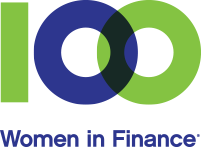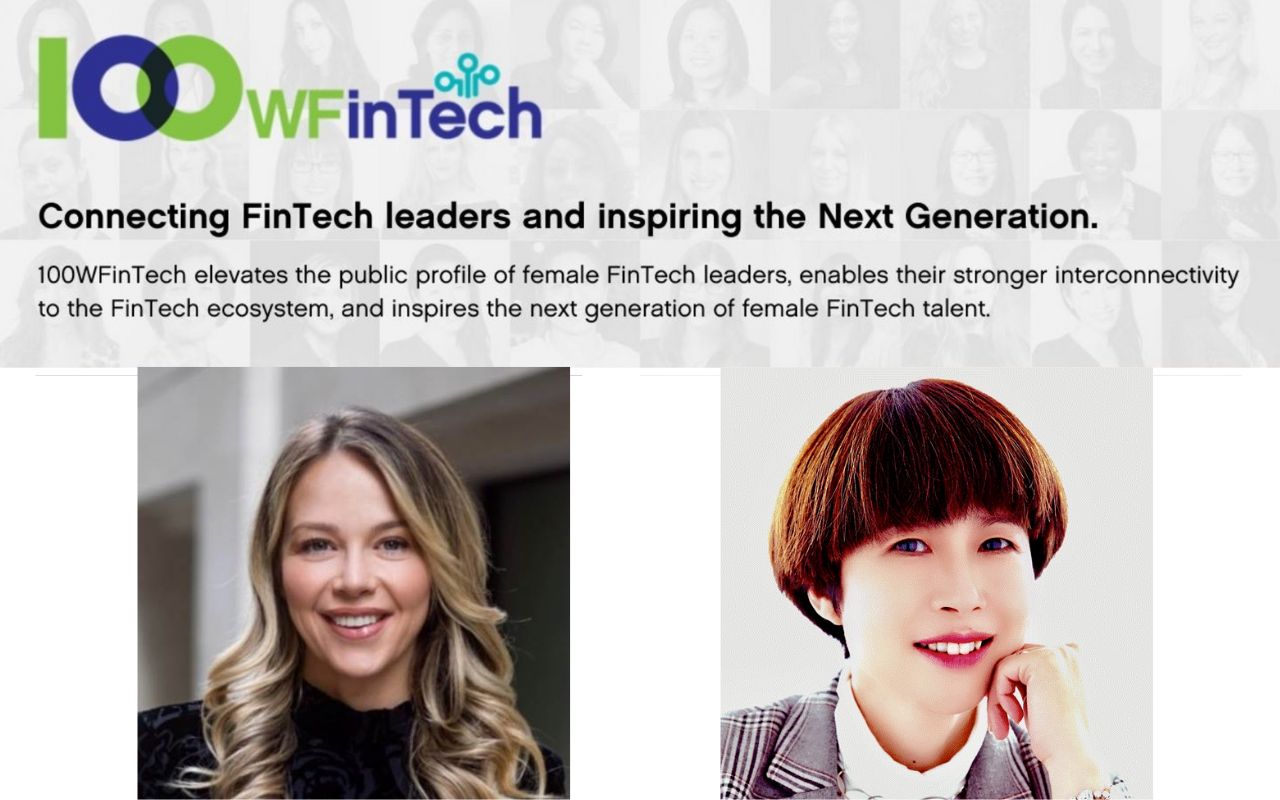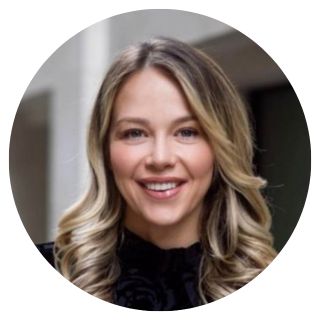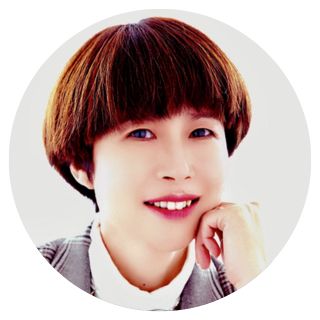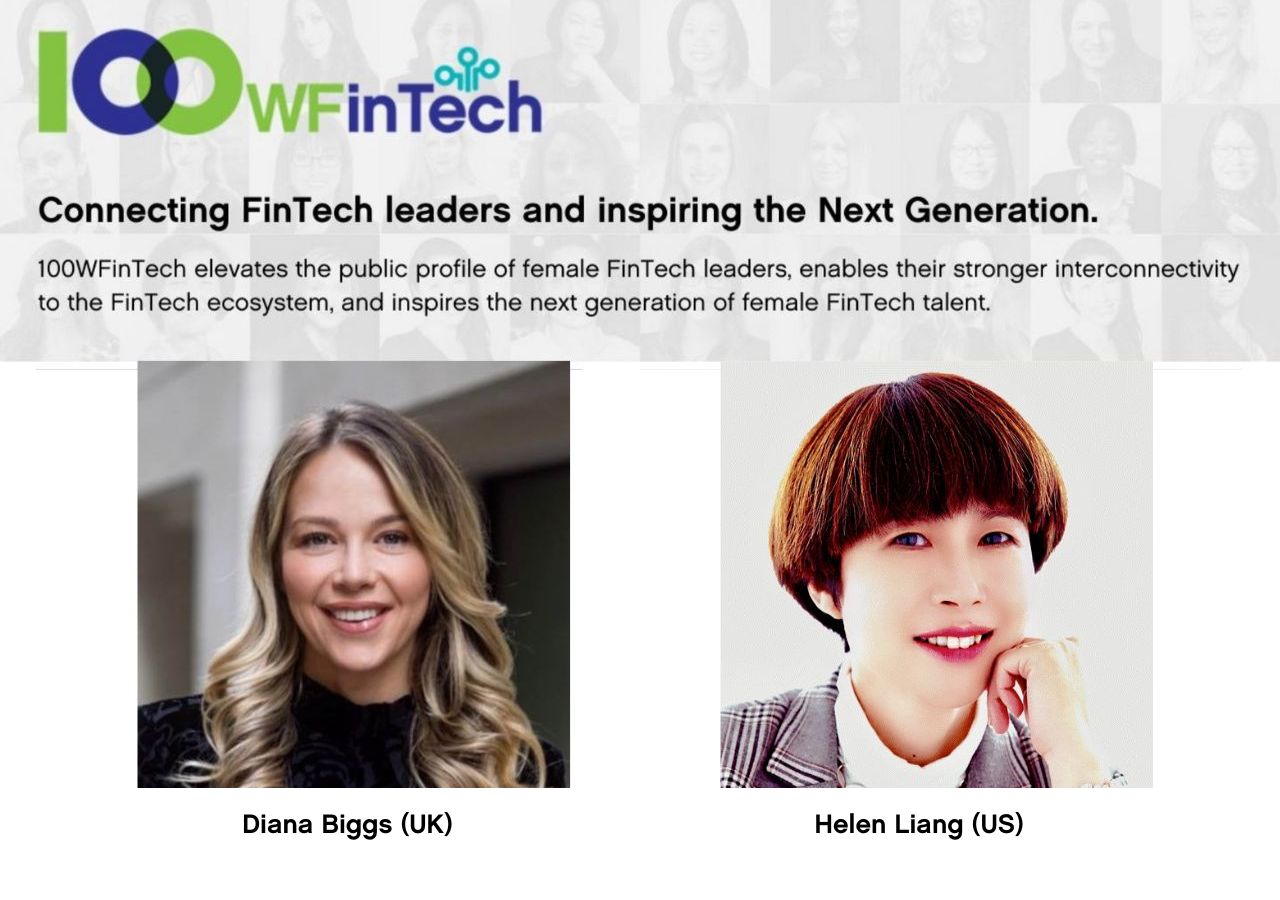
Worldwide, women are leading the way in building and funding disruptive technologies in fintech to advance businesses, broaden access, reduce the disparity in wealth, and transform how people invest in digital assets. Many of these women are featured in 100WFinTech’s Public Directory and are the changemakers in their respective fields in fintech.
In the ‘100WFinTech Changemakers’ series, we share the journey, mission, and learnings of senior fintech women in the Public Directory from around the world, and we are pleased to feature Diana Biggs and Helen Liang this month. We tell stories of how the 100WFinTech Changemakers have created and leveraged opportunities that were open to them via their entrepreneurship, investing, talks, courses, and community building. In the process, they open doors for women investors and diverse founders and broaden financial access for many. We hope the stories of these female fintech leaders can inspire the next generation of finance professionals to build a better and more inclusive world by leveraging technology.
If these stories and missions resonate with you, please share them with your network, get in touch with us, or join the Public Directory.
We are always looking for Changemakers to profile, please contact us if you know someone we should feature.
Diana Biggs, Partner at 1kx
Europe’s Top 10 Women in Fintech 2020
Top 25 Fintech influencers in the UK by CityAM
Winner, WISE Woman in Industry Award 2019
Website: https://1kx.network/team/diana-biggs
LinkedIn: https://www.linkedin.com/in/dianabiggs/
First, we chat with Diana Biggs, a Partner at an early-stage crypto venture firm 1kx. 1kx invests in Seed to Series A stage startups across crypto and Web3, from infrastructure to consumer applications. Diana has been working at the forefront of crypto and innovation for the past ten years, including as the first Global Head of Innovation for HSBC Private Banking and as CEO of digital asset ETP business Valour, which she took from launch to acquisition. Her earlier career includes management consulting with Oliver Wyman’s financial services division and co-founding an e-commerce startup operating between Nairobi and San Francisco. In addition to her role at 1kx, Diana is a Board Member of HIVE Digital Technologies Switzerland and a mentor at Creative Destruction Lab, University of Oxford.
▪ ▪ ▪
Diana talked about her work in crypto and Web3, in particular, her engagement with Saïd Business School at the University of Oxford, where she was previously an Associate Fellow and guest lecturer in Blockchain technology, and her helpful advice for people who want to work in crypto.
▪ ▪ ▪
Why did you get involved with mentorship and academia?
“I am an adamant advocate for lifelong learning, and academic institutions play an essential role in research, innovation, and discovery, particularly for STEM. This is certainly true for the University of Oxford, recognized globally as one of the world’s leading academic institutions, and which has created more spinouts than any other UK university between 2011 and 2022, according to data from Sifted. It’s an incredibly stimulating community, and I’m honored to have the opportunity to contribute in some way. After several years of working in blockchain technology and as an executive in a global financial services institution building out innovation teams, serving as a tutor for Saïd Business School’s Executive Education program in blockchain technology allowed me to share my experience as well as support others in their journey of understanding and working with these emerging technologies. I am also a guest lecturer on cryptocurrency and blockchain technology for the MBA and EMBA Fintech elective program. For new ventures, I would also recommend the Creative Destruction Lab program: a fantastic mentorship program (which takes no equity) to support ventures across 20 areas of innovation. I am a mentor with the Oxford Fintech stream.”
What have you learned in the process? If you could redo the process, is there anything you would change?
“One of my favorite aspects of all of these programs and engagements is the diversity of the students, both in their professional careers and experience, as well as their geographies. This not only makes for fascinating conversation, but the diversity of perspectives and lived experiences from across the globe can lead to fascinating debate and enable us to uncover use cases and opportunities that may never have been apparent from our lenses. I aim to make the classes a collaborative learning process and stimulate discussion – with interactive sessions, participants learn not only from me but from each other (and me from them!)”
What did not make it to the lecture?
“Given that the course is within the business school and there is a range of experience levels, we do not dive deeply into technical details. The aim is to avoid getting stuck in the weeds but to support the understanding of the high-level concepts and potential applications (and a fair amount of myth-busting).”
What would you do if you were not doing what you are doing?
“I feel fortunate to get the opportunity to work with individuals who are dedicating themselves to learning and building in an emerging field. Crypto & Web3 is an ecosystem that makes new economic models and avenues for digital ownership and creative collaboration possible. It also creates the infrastructure for a new financial system and a more open, transparent, and interoperable internet. If I weren’t doing this, I could see myself in medicine, exploring the use of emerging technologies to support scientific discovery and prolonging healthy lifespans.”
What advice would you give to someone wanting to follow a similar path, i.e., work in crypto?
“My advice to someone wanting to follow a similar path is to get involved and experiment – try out new applications, test, and learn. The best way to do that is with others – a great way to start is by attending meetups or getting involved in an online community. Through that collaboration and engagement, you can build a relevant network and uncover what areas excite you the most and possibly the idea for your next venture, whether a startup or a potential new application or business model in your existing firm.”
What is the biggest takeaway you want to leave with the reader at 100 Women in Finance/100WFinTech?
“My biggest takeaway would be to stay optimistic about emerging technologies and where we’re heading. Looking back at the shifts we’ve seen just in our lifetime – going from a world with no internet to home computers to broadband modems to where we are today, anything is possible, so we should acknowledge this opportunity and help to build the future we want to see.”
Helen H. Liang, PhD,
Founder & Managing Partner, FoundersX Ventures (US)
Website: https://www.foundersxventures.com/portfolio
LinkedIn: https://www.linkedin.com/in/helensandhill/
Next, we will chat with Helen Liang.
Helen is the Founder and Managing Partner of FoundersX Ventures based in Silicon Valley, a pioneering venture capital firm established in 2016, investing in entrepreneurs defining the future and breaking barriers in deep tech and enterprise AI with a core focus on building digital infrastructure. She has built a strong investment team carrying out in-depth research on frontier technologies and investment opportunities. She is an early investor in multiple tech unicorns, generating outstanding investment returns.
Helen is featured in The Wall Street Journal and Business Insider as a pioneering tech VC. She is proud to back 12 aspiring women founders & CEOs in deep tech. Helen serves as a board director in multiple pre-IPO companies. She is an invited speaker at TechCrunch and a guest lecturer at Stanford University. Her select investments include SpaceX, Jeeves, Salt Security, Universal Quantum, Rain AI, Kernal Bio, Meru Health, Coursedog, Turion Space, Omniscope, Zafrens, and Cognito TX.
▪ ▪ ▪
Helen shared how she excelled in the “Power Law” in Silicon Valley, particularly with their deep-dive research capacity. Her advice to younger VCs is invaluable and so is her vision for the future of tech.
▪ ▪ ▪
What was your journey towards building your own VC firm?
“After earning my PhD in Materials Science at the University of Wisconsin-Madison, I started my career in the high-tech industry as an R&D engineer and then became a product manager for over 10 years. While in the high-tech industry, I had the opportunity to work with various frontier research labs in top-tier research universities and enjoyed funding breakthrough technologies from lab to market.
I left the high-tech industry at the end of 2012 and founded a smart wearable startup in 2013. After an exit in 2015, I decided to team up with a good friend, Dr. Tom Kosnik, who is a Marketing PhD and an adjunct professor at Stanford teaching Technology Ventures. We have quite complementary backgrounds, but share the same belief in entrepreneurship and technology as the major forces driving the human race forward. We established our venture firm in early 2016 with young talents from Stanford, focusing on backing early-stage tech startups at seed and A rounds in enterprise AI and deep tech.”
What are your firm’s distinguishing features – research, people, process?
“Venture Capital is a highly challenging game which follows the Power Law. To build a successful venture firm, I know from Day 1 that we will need to outcompete the majority of early-stage VCs and deliver results as a top 5% player. What enables our team to win the Power Law, i.e., to be able to pick huge winners and outcompete in the venture space is our deep-dive research capacity. Before we make any investments in any verticals, our team carries out extensive research on the competing technologies/ solutions to get a holistic view, then map out the underfunded opportunities for substantial value creation in deep tech, enterprise AI and digital infrastructure. Our team excels in deep-dive research.
Over the years, we have done in-depth research in quantum computing, AI chips, deep learning, game theory, data security, neuroscience, brain-computer interface, anti-aging and many other topics. We also share our research reports with our institutional investors to build long-term partnerships. The deep dive research capacity enabled us to hit multiple home runs and unicorns in our Fund 1 and build a high-growth portfolio with over 20 companies valued at over $100M. Our firm has been featured in the WSJ and Business Insider as a pioneering tech VC, despite being a fairly new fund.”
What have you learned in the process? What are you most excited about going forward?
“Venture investing in technology startups is a great learning experience. In the past 7 years, I have learned great lessons in staying ahead of the curve in venture investments by being cool-headed with strong venture discipline while being warm-hearted and backing the audacious tech founders. To win the Power Law in early-stage venture investments, instilling venture discipline on Day 1 is absolutely important. We work with tech founders to enforce strong product and market focus, a growth-driven mindset, brutal honesty, and operation excellence at the seed stage. That has been a key factor for us to continue to pick huge winners.”
Going forward, besides the GenAI paradigm shift which is going in full stream, I am most excited to see many more brilliant scientists, engineers, researchers and professors breaking out of their comfort zones to become daring entrepreneurs. Almost every week we have founders reaching out to us from top research institutes such as Harvard, MIT, Stanford, and UC Berkeley, tech giants such as Google, Microsoft, and Amazon as well from Wall Street firms JP Morgan, Goldman Sachs etc. The world is a beautiful place with beautiful minds.”
What is the best result that came about after you built your firm? The most surprising thing?
“The best thing that came out after I built the firm was seeing the strong growth of our portfolio companies and the changes empowered by them and us together. We mostly back two types of founders: the first type is those defining the future in deep tech, such as in quantum computing and AI chips. We backed a pioneering quantum computing company, Universal Quantum, which has won $80M in commercial contracts. We also backed a breakthrough AI chip company, Rain AI, which could lower the chip power demand by 100X. The second type of founders that we back are those breaking the barriers, such as in digital health and enterprise SaaS. We backed multiple mental healthcare companies including women’s mental healthcare, which are making impacts in helping burn-out engineers, depressed young moms and college students, and saving lives. Our portfolio company Meru Health showed their treatment solution could reduce the suicide rate by one-third for people suffering from depression.
The most surprising thing would be how resilient our tech founders are. During COVID, when the whole world was shut down, I was really worried about our deep tech startups since they had a hard time accessing fabs and research labs as well as capital funding. Yet all the founder teams successfully found ways to deal with the crisis and continue to drive for growth. I was happily surprised by their optimism and resilience.”
What would you do if you were not doing what you are doing?
“If not making venture investments, one possibility is that I would be founding another tech startup, likely a GenAI startup in the fashion or movie industry, both could use major AI transformation. That could create substantial value and would be a lot of fun as well. The other possibility would be volunteering to teach technology ventures at Stanford or Harvard Business School, sharing my venture-building and investing experience and lessons learned in my journey. I hope that would help more tech founders to grow their startups to scale faster, avoiding the common traps and mistakes.”
What advice would you give to someone wanting to follow a similar path, i.e., building a VC firm?
“My advice would be to think about your strong edges and what will enable you to win the Power Law first. That includes what to make of your unique investment thesis, how to raise initial capital, how to build a top-performing team, and how to build a strong foundation with a top-tier founder network, deal pipeline, and co-investing network. Most importantly knowing venture investing is a long-game and a trust business. Do you have the trust base to start? Do you have the venture discipline and enjoy the long game? These would be the questions to start.”
What is the biggest takeaway you want to leave with the reader (100WF / 100WFinTech audience)?
“Venture investing could be high impact and high reward, but it is a highly challenging game. If you have the drive and venture discipline and enjoy fast-paced and constant learning about new technologies and ever-changing economic growth driving forces, venture investing would be a very exciting career path. To me, it is my dream job to back the most brilliant young minds in the technology world!”
Q1 Event Highlights:
January 24, 2024, London in-person event, “Bridge the Gap Between Traditional Financial Markets and Digital Assets,” organized by 100WfinTech Committee and hosted by Komainu
February 15, 2024, virtual three-part series, Part 1, “Practice Executive Presence,” co-sponsored by 100WFinTech and NY Mid-Career Committees, hosted by Kadima Careers
Upcoming events organized or co-hosted by 100WFinTech:
March 14, 2024, virtual three-part series, Part 2, “Tell Your Story,” co-sponsored by 100WFinTech and NY Mid-Career Committees, hosted by Kadima Careers
April 1, 2024, virtual three-part series, Part 3, “Pivoting Mid Career,” co-sponsored by 100WFinTech and NY Mid-Career Committees, hosted by Kadima Careers
April 10, 2024, in-person event, Munich, Germany, Future of Finance series: Wealthtech Panel & Networking, sponsored by Scalable Capital and BlackRock
Q2 2024, in-person event, New York, “FedNow and Payment Rails”, sponsored by Fingercheck
▪ ▪ ▪
This is the fifth article of our Changemakers in fintech series. In the future, we will continue to feature fintech book authors, TED Talks speakers, lecturers, and influencers from around the world.
If you are interested in partnering with us at 100 Women in FinTech, please visit our website and contact us here.
